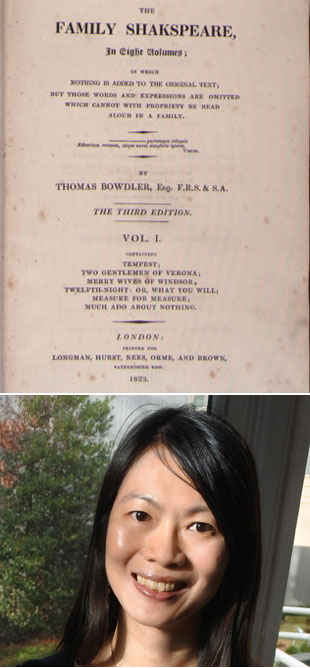The truth is in danger. Working with reporters and writers around the world, Index continually hears first-hand stories of the pressures of reporting, and of how journalists are too afraid to write or broadcast because of what might happen next.


The truth is in danger. Working with reporters and writers around the world, Index continually hears first-hand stories of the pressures of reporting, and of how journalists are too afraid to write or broadcast because of what might happen next.

Index on Censorship has dedicated its milestone 250th issue to exploring the increasing threats to reporters worldwide. Its special report, Truth in Danger, Danger in Truth: Journalists Under Fire

The Index on Censorship Big Debate took place at the 5th annual Leeds Big Bookend Festival this week, where journalists and authors were invited to discuss which has the biggest impact: journalism or fiction.

Shakespeare has been used to divert around censorship, “sanitised” and redacted for children, young adults and school use, and even used as a form of protest

Index on Censorship has dedicated its milestone 250th issue to exploring the increasing threats to reporters worldwide. Its special report, Danger in Truth: Truth in Danger, Journalists Under Fire and Under Pressure explores why journalism has become so dangerous.

In a world filled with new digital tricks, journalists shouldn’t forget traditional verification techniques, says former newspaper editor Peter Sands

Saturday 23 April marks the 400th anniversary of Shakespeare’s death. To honour the occasion Index has put together a list of all things Shakespeare.

A year after returning from exile, Honduran gay rights activist Donny Reyes still fears a murderous attack at any minute

Un año tras volver del exilio, Danny Reyes, un activista homosexual hondureño aún teme ser asesinado en cualquier momento

After visiting his homeland, former Yugloslavia, last summer Edin Suljic was inspired to write his latest poem My Mate Shakespeare
A quarterly journal set up in 1972, Index on Censorship magazine has published oppressed writers and refused to be silenced across hundreds of issues.
The brainchild of the poet Stephen Spender, and translator Michael Scammell, the magazine’s very first issue included a never-before-published poem, written while serving a sentence in a labour camp, by the Soviet dissident Aleksandr Solzhenitsyn, who went on to win a Nobel prize later that year.
The magazine continued to be a thorn in the side of Soviet censors, but its scope was far wider. From the beginning, Index declared its mission to stand up for free expression as a fundamental human right for people everywhere – it was particularly vocal in its coverage of the oppressive military regimes of southern Europe and Latin America but was also clear that freedom of expression was not only a problem in faraway dictatorships. The winter 1979 issue, for example, reported on a controversy in the United States in which the Public Broadcasting Service had heavily edited a documentary about racism in Britain and then gone to court attempting to prevent screenings of the original version. Learn more.